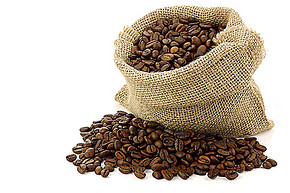Introduction to the Historical Development of Rwanda Coffee in Rwanda
Follow the caf é (Wechat official account vdailycom) and found that Beautiful Cafe opened a small shop of its own.
Rwanda Rwanda
Full name of the country: Republic of Rwanda
Population: about 9.74 million
Capital: Kigali
Language: Rwandan
Annual output of coffee: 18000 tons
Through the colonial trade policy, farmers everywhere were required to plant 70 coffee trees, thus creating the history of coffee production in Rwanda.

Unlike other coffee-producing countries, Rwanda still does not have large-scale estates, but coffee is grown by 500000 small-scale farmers, each of which grows about 200 coffee trees on average. therefore, the coffee industry in Rwanda is supported by these small-scale farmers. The cultivation of small farmers is characterized by the use of upland volcanic soil at an altitude of 1500m to 2000m and the natural cultivation method without adding pesticides or organic fertilizers, with the concept of attaching importance to quality and protecting the environment.
Coffee is now an important crop with the fastest rising export rate for Rwanda. For residents, it is the largest source of income.
If you learn more about the coffee industry in Rwanda, you will find that without the existence of the Coopac Agricultural Association, it is likely to make its coffee industry disappear. In 2007, coffee produced by the Coopac Agricultural Coffee Association was recognized by the East African Coffee Association as the best coffee in East Africa, so it became more active in building facilities such as small medical institutions, schools, roads or bridges, while also trying to create an environment in which women and children have equal access to benefits. Deciduous trees are also widely planted, wastewater treatment systems are introduced, and policies that attach importance to environmental protection are formulated.
Rwanda's coffee refinery, which used to be natural drying, began to develop boutique coffee in 2001 and had 130 refineries in 2008 in an attempt to significantly improve its quality. The coffee fruit harvested by the farmer will be sent to the nearest centralized station and carefully refined.
Sun exposure is the main method when drying, and the washed coffee beans will be kept in the drying shed for more than two weeks, so that the moisture content can be reduced to 10.5%. Coffee beans that are not good in color or appearance will also be removed by hand.
Important Notice :
前街咖啡 FrontStreet Coffee has moved to new addredd:
FrontStreet Coffee Address: 315,Donghua East Road,GuangZhou
Tel:020 38364473
- Prev

Introduction to the processing methods, taste and flavor of kirorero in Rwanda
Follower Cafe (official Wechat account vdailycom) found that the Beautiful Caf é opened its own shop in Rwanda, a sovereign country in central and eastern Africa, south of the equator and bordering Uganda, Tanzania, Burundi and the Democratic Republic of the Congo. Rwanda is located in the Great Lakes region with a high elevation and is geographically characterized by the mountains in the west and the savannahs in the east.
- Next

Brief introduction of Koakaka Farmers' Association Rwanda Coffee
Follow Kaiping (Wechat official account vdailycom) found that the Cafe Beautiful opened a small shop of its own Rwanda is a landlocked country in Central Africa. The Democratic Republic of the Congo is bordered to the west, Uganda to the north, Tanzania to the east and Burundi to the south. The geography of Rwanda is roughly divided into four pieces. To the east is the Nile, and to the west is the abundance of the Congo River.
Related
- Detailed explanation of Jadeite planting Land in Panamanian Jadeite Manor introduction to the grading system of Jadeite competitive bidding, Red bid, Green bid and Rose Summer
- Story of Coffee planting in Brenka region of Costa Rica Stonehenge Manor anaerobic heavy honey treatment of flavor mouth
- What's on the barrel of Blue Mountain Coffee beans?
- Can American coffee also pull flowers? How to use hot American style to pull out a good-looking pattern?
- Can you make a cold extract with coffee beans? What is the right proportion for cold-extracted coffee formula?
- Indonesian PWN Gold Mandrine Coffee Origin Features Flavor How to Chong? Mandolin coffee is American.
- A brief introduction to the flavor characteristics of Brazilian yellow bourbon coffee beans
- What is the effect of different water quality on the flavor of cold-extracted coffee? What kind of water is best for brewing coffee?
- Why do you think of Rose Summer whenever you mention Panamanian coffee?
- Introduction to the characteristics of authentic blue mountain coffee bean producing areas? What is the CIB Coffee Authority in Jamaica?

